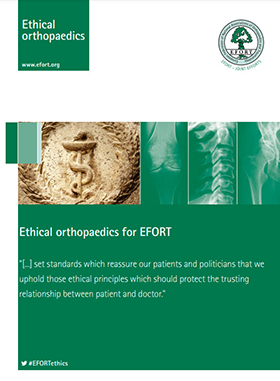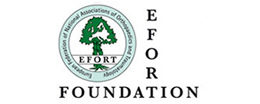 In its simplest terms Ethics is the science of human duty. There is clearly a link between the law and ethics but the former tends to concentrate on rights and the latter on values. Concerns for our patients’ welfare and the proper behavior of those who treat them date back 4,000 years to the Code of Hammurabi. It is 25 centuries since Hippocrates exhorted us “to abstain from doing harm”.
In its simplest terms Ethics is the science of human duty. There is clearly a link between the law and ethics but the former tends to concentrate on rights and the latter on values. Concerns for our patients’ welfare and the proper behavior of those who treat them date back 4,000 years to the Code of Hammurabi. It is 25 centuries since Hippocrates exhorted us “to abstain from doing harm”.
In 2005 a JBJS editorial noted that our patients and our Governments grant us certain privileges but expect us to be guided by ethical principles. We set the standards for entry, assessment, training and certification and seek to ensure these standards are maintained throughout a professional lifetime. We are expected in return to treat our patients with skill, care and consideration.
All practising orthopaedic surgeons should combine honesty and integrity with altruism. We need to maintain physical and mental health to practise efficiently and should strive to balance work, family and recreational pursuits appropriately. Professionally we must work within the limits of our competence. Our patients deserve our compassion and understanding. They and their relatives should understand our commitment to maintaining confidentiality. They need to choose between treatments we offer and we are responsible for explaining options honestly, simply and clearly. The advice should be based both on the best-available evidence and our own experience. The options offered should consider any limitations imposed by the resources available to us. Whenever possible a simple procedure should be preferred to a complex one.
Research is essential for progress. It should increase the understanding and management of disease and improve patient outcomes. Where possible, laboratory experiments are preferred to animal or human ones. Anyone who conducts patient-related research should understand the ethical, institutional and government guidelines which guide behaviour. Patients must be fully informed about the objectives, risks and potential benefits of the study. If the investigator and his team stand to benefit individually or institutionally the patient should know. Poor results should not be excluded on any pretence. We all have responsibility to report ethical misconduct in scientific research such lapses whether they be of plagiarism, deception, falsification and/or fabrication of data.
EFORT Ethics Full Report | PDF document | 24 pages | 620kb
![]()
Artifical Intelligence Use in Orthopedics: an Ethical Point of View
By Elcil Kaya Bicer, Heiner Fangerau and Hakki Sur – published in EFORT Open Reviews, August 2023
In recent years, AI has infiltrated every aspect of life, including medicine. In the medical arena, AI typically occurs in the form of either algorithms or robotic technologies. The ability to gather, analyze, and store big data has resulted in the creation of algorithms for calculating specific risks, expected patient satisfaction, and even the expected success rate for procedures or medications.
Additionally, in orthopedics and other disciplines, evolving robotic technology has reached a state that could allow a surgeon, at least hypothetically, to remotely operate on patients. With the ability to assist in decision-making processes, increase surgical precision, and minimize the time spent on certain aspects of surgery, such as the use of endoscopic knot-tying robots, for example, AI and robotic technology have earned a permanent seat in the operating theater.
READ THE FULL ARTICLE IN EFORT OPEN REVIEWS
![]()
EFORT – Ethical Guidelines | Artificial Intelligence in Trauma and Orthopaedic Surgery
Artificial Intelligence (AI) is likely to play an ever increasing role in orthopaedic diagnostics, therapy, monitoring and prevention. Sensible and responsible deployment of this technology must be a feature in both research and clinical settings. Demonstrable benefit for both science and the patient must be a guiding principle.
The duty of care to patients must not be overshadowed by our desire for progress. Autonomous surgical systems should not be used if they fail to align, at any stage, with medical ethics, dignity, human rights, freedom, and cultural diversity. Patients should be fully informed, involved and give their consent.
A culture of co-operation, trust and transparency between AI scientists and surgeons must underpin the evolution of this growth area, guided by European Union law concerning human rights and ethical values.
The principles of biomedical ethics and the ‘Key considerations in ethical orthopaedic practice’, as formulated in the statement from the EFORT ethics committee entitled “ETHICAL ORTHOPAEDICS FOR EFORT (2014)” applies and is now supplemented by guidance on AI research, development and use at all stages in the lifecycle of AI applications.
Artificial Intelligence Ethical Guidelines (2019) | PDF Document | 3 pages | 60kb
Hakki Sur – Chair of EFORT Ethics Committee (Turkey)
M.K.D. Benson (United Kingdom) | H. P. Coudane (France) | H. Fangerau (Germany) |
K. Maasalu (Estonia) | P. Ruggieri (Italy) | H-A Schuppers (Netherlands)
Share your opinion in Ethical Orthopaedics: #EFORTethics


